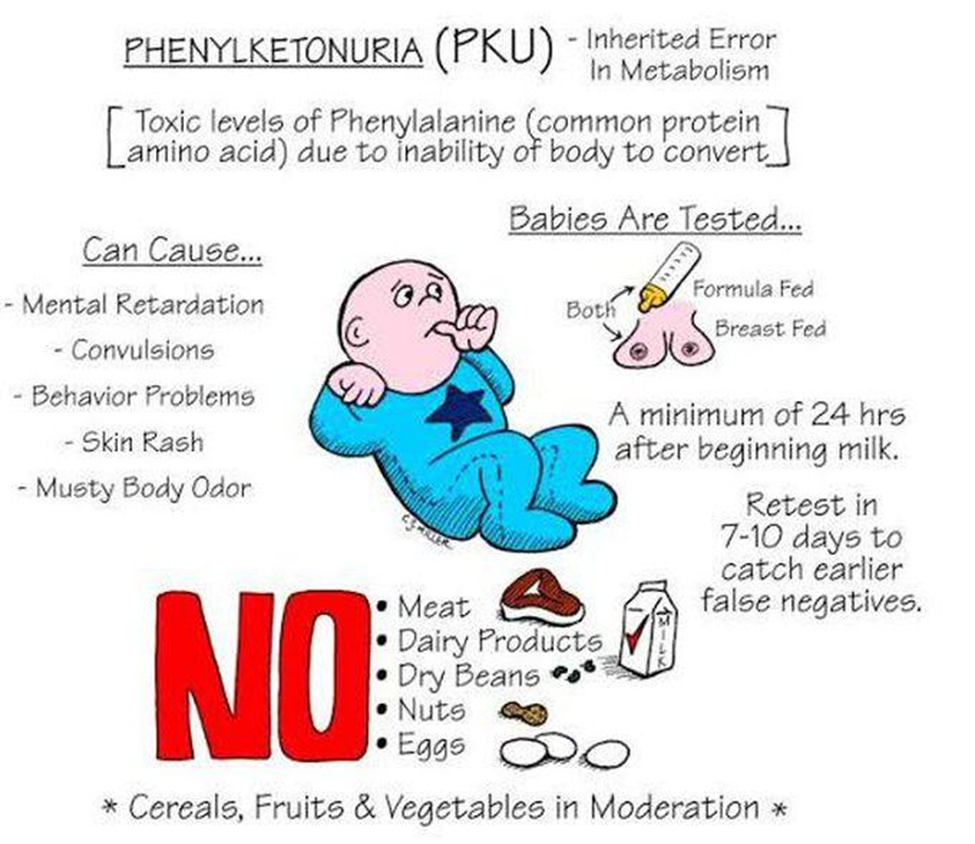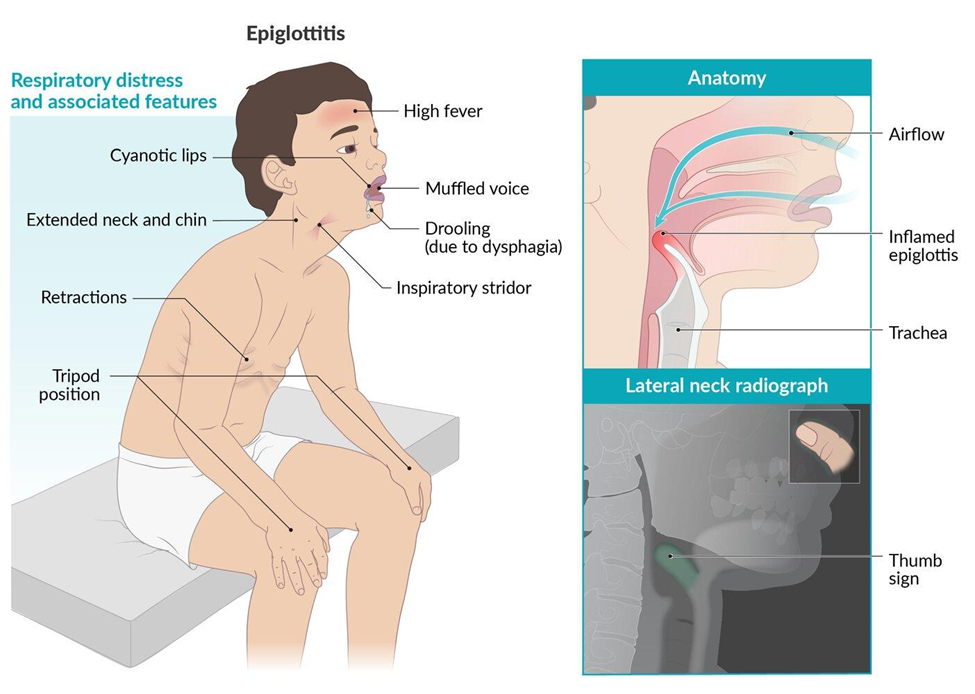A parent brings a 2-week-old infant to a clinic for a phenylketonuria rescreening blood test. The test indicates a serum phenylalanine level of 1 mg/dL (60.5 mcmol/L). The nurse reviews this result and makes which interpretation?
It is inconclusive
it is negative
it requires rescreening at age 6 weeks.
It is positive
The Correct Answer is B
A. It is inconclusive
Explanation: A serum phenylalanine level within the normal range is considered conclusive in ruling out phenylketonuria. Inconclusive results typically occur when there are issues with the sample or testing process.
B. It is negative
Explanation:
A serum phenylalanine level of 1 mg/dL (60.5 mcmol/L) in a 2-week-old infant is within the normal range. In the context of phenylketonuria (PKU) screening, a "negative" result means that the phenylalanine levels are within the expected range, and there is no evidence of phenylketonuria.
C. It requires rescreening at age 6 weeks.
Explanation: If the initial screening result is within the normal range, rescreening at age 6 weeks may not be necessary for phenylketonuria. The timing and need for rescreening may vary based on local protocols and individual patient factors.
D. It is positive
Explanation: A positive result for phenylketonuria would indicate that the serum phenylalanine levels are elevated, suggesting a potential diagnosis of PKU. In this case, the result is negative, meaning there is no evidence of PKU.

Nursing Test Bank
Naxlex Comprehensive Predictor Exams
Related Questions
Correct Answer is D
Explanation
A. Administer 0.9% sodium chloride IV solution: Although IV fluids might be necessary to maintain hydration and circulation, this is not the priority over preventing the spread of infection.
B. Assist with obtaining an x-ray of the child's neck.Imaging can help confirm the diagnosis but should be done after ensuring infection control measures.
C. Initiate IV antibiotics.Antibiotics are crucial for treatment but should follow the implementation of droplet precautions to prevent the spread of infection.
D. Place the child on droplet precautions.
Epiglottitis is a medical emergency primarily caused by bacterial infections, such as Haemophilus influenzae type B (Hib). The first priority is to ensure the safety of both the patient and others by preventing the spread of infection.Placing the child on droplet precautions helps to contain the bacteria and protect healthcare workers and other patients.

Correct Answer is ["A","B","C","D","E"]
Explanation
A. The child and family will integrate diabetes care into patterns of daily activity:
Correct Answer: Correct.
Explanation: Integrating diabetes care into daily activities helps the child manage their condition more effectively. This goal encourages normalization of the routine, making it easier for the child to participate in social events.
B. The child and family will discuss all aspects of the illness and its treatments:
Correct Answer: Correct.
Explanation: Open communication about the illness and its treatments is crucial for understanding and managing diabetes. This goal promotes family education and support, which can help alleviate concerns.
C. The child will use effective coping mechanisms to manage anxiety:
Correct Answer: Correct.
Explanation: Managing anxiety is important for overall well-being. Teaching the child effective coping mechanisms helps them navigate the emotional aspects of living with diabetes and participating in social events.
D. The child and family will discuss their concerns with the child's teachers and the school nurse:
Correct Answer: Correct.
Explanation: Communication with school personnel is essential to ensure a supportive environment for the child. Discussing concerns with teachers and the school nurse promotes awareness and collaboration in managing the child's diabetes at school.
E. The child's normal growth and development will be maintained:
Correct Answer: Correct.
Explanation: Maintaining normal growth and development is a crucial goal. It ensures that the child can engage in age-appropriate activities and social events while managing their diabetes effectively.
Whether you are a student looking to ace your exams or a practicing nurse seeking to enhance your expertise , our nursing education contents will empower you with the confidence and competence to make a difference in the lives of patients and become a respected leader in the healthcare field.
Visit Naxlex, invest in your future and unlock endless possibilities with our unparalleled nursing education contents today
Report Wrong Answer on the Current Question
Do you disagree with the answer? If yes, what is your expected answer? Explain.
Kindly be descriptive with the issue you are facing.
